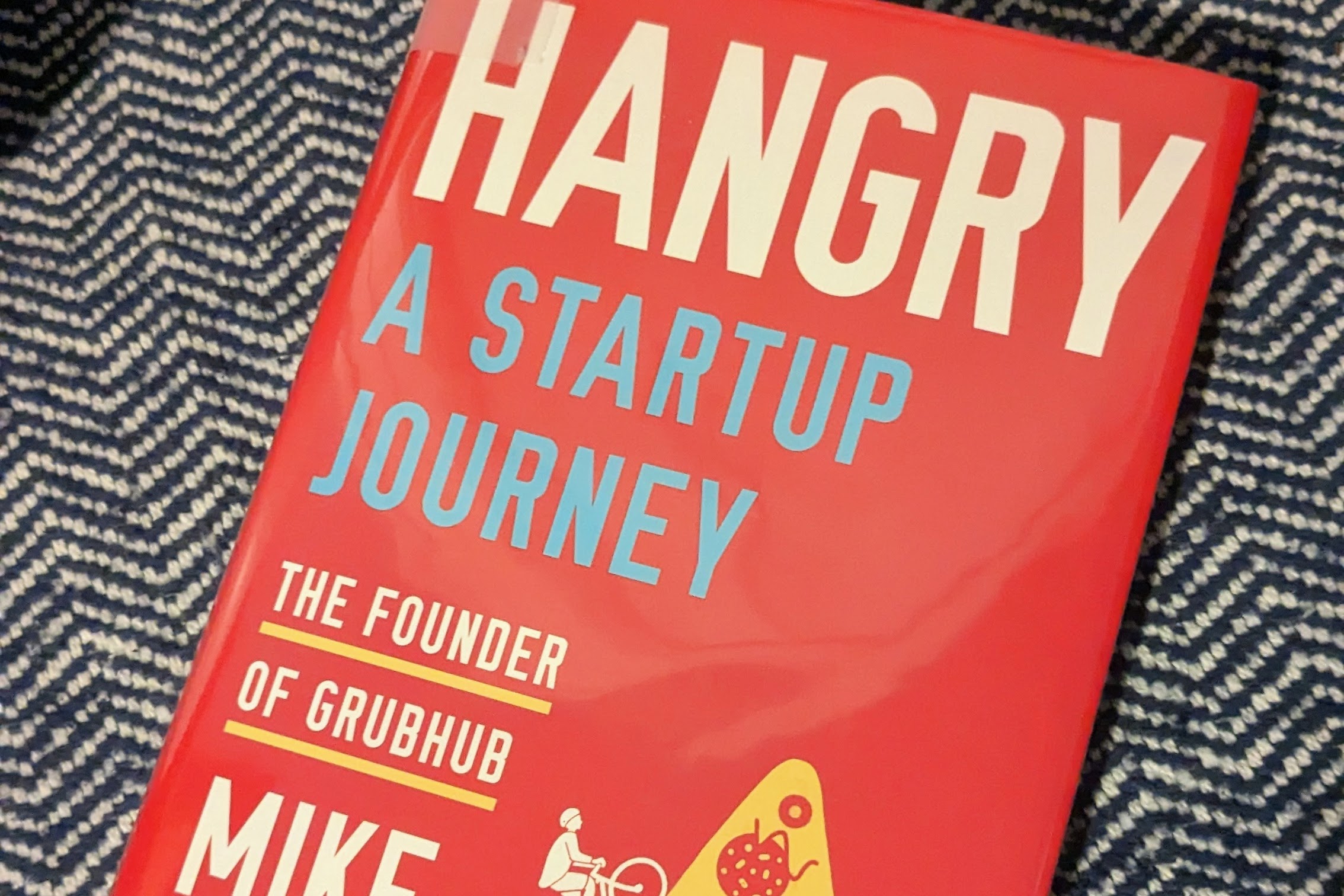This post may contain affiliate links. Every link is hand-selected by our team, and it isn’t dependent on receiving a commission. You can view our full policy here.
Growing up, I was really good at quitting things. Specifically, sports. Because I’m tall, people always told me I should be a basketball player. Or volleyball player. Or maybe get into flag football. But definitely basketball. So I did those things, and very, very early on, I quit them all. (I actually quit flag football halfway through the two-day tryouts…and still peeked at the roster on the coach’s door to see who made the team.)
I used to be embarrassed of this. I worked for years on building my grit, thinking I was weak for giving up on those sports—sports everyone told me I was naturally inclined to be good, even great, at!—but it wasn’t until I read Hangry: A Startup Journey, that something clicked about my once-embarrassing past.
Written by GrubHub founder Mike Evans, the entrepreneur outlines how a desire to have easier access to pizza led to him founding the online delivery platform. There’s no starry-eyed glossing over of details; he’s direct and honest in his assessment of the company’s highs and lows, and its shortcomings post-IPO, as the company began courting chains and profit above all else. He talks about leaving the company $20 million-ish richer, and his decision to reconnect with her formerly less-asshole-ish self (by his own admission) while biking across the country. As things get difficult, he makes an important distinction that shapes the course of many of his decisions: the difference between quitting and giving up.
“A good quitting comes hand in hand with a goal,” he writes. “It’s abandoning a thing in favor of something better. Giving up is just frustration and apathy.”
It becomes his litmus test for major decisions. When he wants to quit the dead-end job, at first he realizes: “I don’t have any discernible goal, so I better figure out what’s next. And quick.” Later, he decides to leave GrubHub when his goals no longer align with the company’s. On the bike trail, he determines whether to keep going based on this view.
And that’s what I realized: Giving up on basketball, volleyball and flag football weren’t a sign of weakness, even if I quit before giving them a fair shake (even just a couple hours in tryouts). I didn’t have a goal associated with them; they were goals somebody else had for me, that I felt like I should want, even though I didn’t actually want to do those things. There are plenty of things I’ve stuck with—writing, reporting, even this blog—because they aligned with what I wanted and a goal I had to create content and share my thoughts with the world.
So if you’re forcing yourself to stick to something and it’s driving you to the edge of burnout, consider Evans’s advice. Fighting for a goal will suck sometimes, and you’ll want relief. But as long as you have a clear goal that you genuinely want to chase, it’s worth the effort. If it’s not for you, don’t fight to stick with it—and burn yourself out in the process—just because you feel like you should. Or because somebody else will think more of you for it.
You can read Evans’s whole story in Hangry: A Startup Journey, available on Amazon and at most bookstores.
This post contains affiliate links, which help fund the operation of this site.
Lead Photo: Candace Braun Davison




